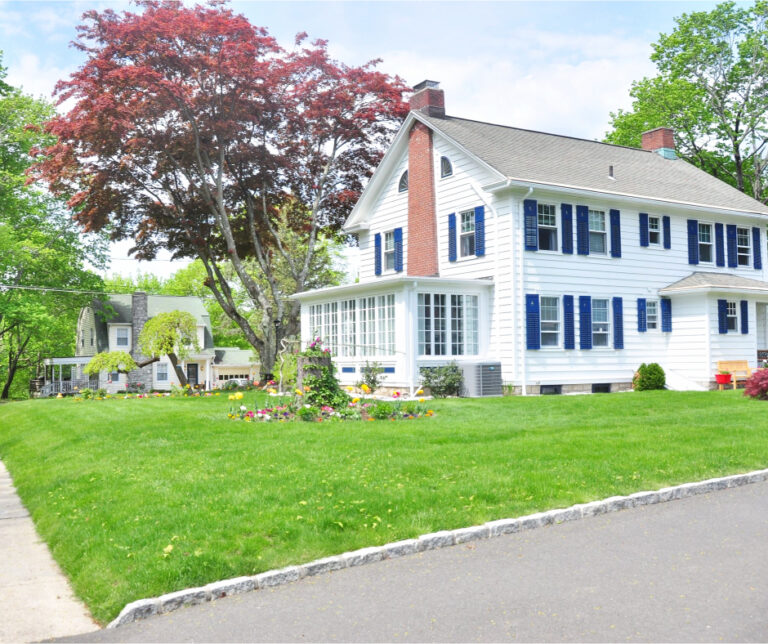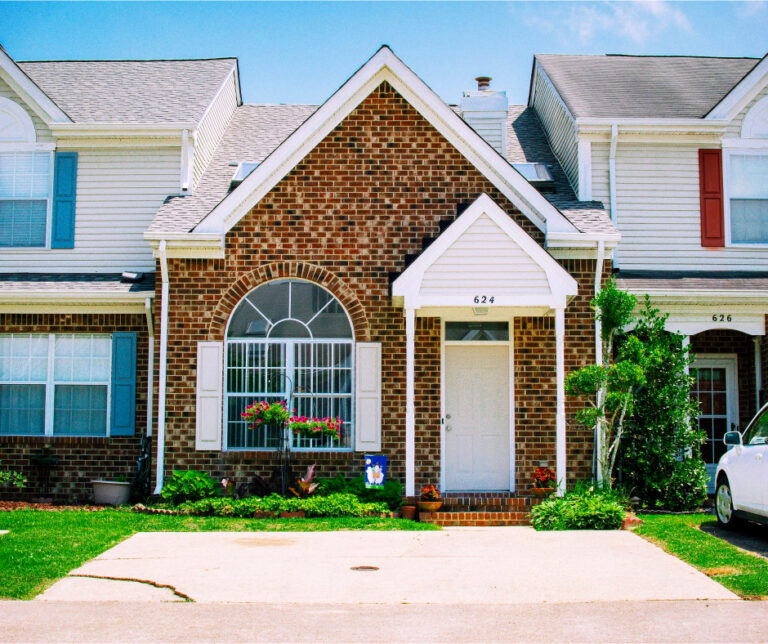In this blog, we will cover buying a house near train tracks. We will discuss living near railroad tracks and what the concerns should be. Homebuyers might come across beautiful properties near railroad tracks. Alex Carlucci of Gustan Cho Associates explains the benefits of buying a house near train tracks during the time of seller’s market:
Buying a house near train tracks will benefit homebuyers buying a home in a sellers market. Homebuyers can get a lot of house for the money if they purchase a home near railroad tracks. Homes are priced at a discount near railroad tracks.
At the same time, it may seem like an idyllic location, but such properties might evoke a host of concerns. Before deciding, weigh the pros and cons of living near train tracks. In the following paragraphs, we will cover buying a house near train tracks.
How Close Is Too Close Buying a House Near Train Tracks
How close is too close when buying a house near train tracks? A home’s proximity to railroad tracks depends on the homeowner. Real estate experts suggest that homebuyers buying homes near railroad tracks be at least 500 feet away from railroad tracks. It’s also suggested that homes be 1,000 feet away from junctions, where trains switch railroad tracks. Dr. Martin Blank of Gustan Cho Associates is a cardiovascular and trauma surgeon. Dr. Martin Blank explains the hazards that pollution from trains can have on people:
Homeowners living near railroad tracks can be susceptible to health hazards. Families with small children and pets living near railroad tracks can also be a health hazard due to pollution, accident, high congestion, and loud noise.
Children and pets near railroad tracks must be closely supervised because they may venture too close to tracks, putting themselves in harm’s way. If a derailment or train occurs, homeowners living close to railroad tracks may experience hours of congestion and havoc in their neighborhood.
Buying a House Near Train Tracks
What are the risks of buying a home near railroad tracks? Exposure to noise pollution can harm health, including an increased risk of hypertension, cardiovascular disease, and anxiety. Additionally, homebuyers buying homes near railroad tracks should become aware of potential health hazards. Trains emit diesel exhaust from trains, which can be a health hazard. Statistics and data show that diesel exhausts from trains cause disease of heart and respiratory issues.
Health Hazards Living Near Railroad Tracks
Studies show that people living near railroad tracks are more susceptible to respiratory diseases. Asthma and health complications are common long-term health problems for people near railroad tracks. Dr. Martin Blank, a cardiovascular and trauma surgeon explains the health hazards of living near train tracks:
Health hazard symptoms of people affected living near railroad tracks are coughing, wheezing, and shortness of breath. Exposure to diesel exhaust may trigger asthma attacks for those with weak immune systems. The severity of health issues is dependent on how often the frequency of passing trains.
Homeowners who live near busy high-speed train tracks have a greater risk of health problems. Lower traffic frequency and intensity of passing trains reduce the health risk level for people.
Benefits and Negatives of Buying a House Near Railroad Tracks
This section will cover the benefits and negatives of living near railroad tracks. Homebuyers buying homes near train tracks will get prices below market. Homebuyers buying a house near train tracks can find homes priced under market value versus homes away from railroad tracks.
FAQs From Homebuyers Buying a House Near Railroad Tracks
The first thing coming to mind for homebuyers looking at homes near train tracks is the potential loud sound during all times of day and night. John Strange of Gustan Cho Associates lived near train tracks for ten years. He shares his opinions about living in a house near railroad tracks:
How often will the frequency of trains traveling be? Will the loud train noise disturb me during the middle of the night? What type of disruption will trains pass cause my family and me? Will the house shake when trains pass? Will the house sustain damage from the vibration of trains? Is the lower market price of the house worth living near railroad tracks? Will the lower-priced home be a good option and make my housing expenses affordable?
These questions must be discussed with the family and thoroughly evaluated before buying a home near railroad tracks. Those who live near train tracks and commute to work using trains may find it convenient to live near train tracks.
The benefit of Living Near Train Station For Commuters
Living near a train station can be very convenient and save you money and time if you count on using the train to commute to work and back. Cars are very expensive. So are fuel prices.
Commuters riding trains to commute to work will save time and money on transportation costs. Catching a train from an adjacent station saves commuters driving during rush hour traffic. Taking the train versus driving your vehicle is a convenience that is a significant benefit for commuters who work during rush hour traffic.
Living near train tracks offers a different type of living experience. For many, living near railroad tracks does not bother them. Others cannot stand it. It is up to each individual how railroad tracks affect them. For those who appreciate the rich history of railways or love seeing and hearing trains go by, living in such an area can be an exciting experience.
Loud Noise Living Near Train Tracks
The cons of buying a house near train tracks also need to be considered: Noise pollution is one of the biggest complaints about homes near railroad tracks. When he was younger, Dale Elenteny of GCA Mortgage Group lived in a house near the train tracks.
Living near train tracks can be disruptive depending on the time of day. There were many days where the passing train woke me up in the middle of the night where I could not go back to sleep. Eventually, you get used to the loud noise but trains should not pass during the wee hours of the morning.
Passing trains can be loud and disruptive for residential and businesses, depending on how close you live to railroad tracks. The sound of trains passing by can be loud and disruptive, especially during the night when you are trying to sleep can be intolerable. The constant noise can result in considerable sleep loss, ultimately affecting your productivity during the day.
Buying a House Near Train Tracks For Families With Children and Pets
Living near railroad tracks can harm families with small children and pets. While train derailments are rare, they can potentially result in devastating accidents. Children and pets may also risk wandering too close to the tracks and injuring themselves.
Furthermore, constant and frequent vibrations from trains can cause significant structural damage to older homes.
Drawbacks of Buying a House Near Train Tracks
Depending on the age and construction type of the house, vibrations from passing trains might cause severe damages that require regular maintenance and repairs. The continuous shaking and vibrating of a home caused by rail lines could ultimately diminish its
value over time, causing owners to spend more money than initially expected for upkeep.
Difficult In Selling House Near Railroad Tracks
Difficulty Reselling: Living close to train tracks may pose challenges when you try to sell your home in the future. Some individuals may want to avoid living near the tracks due to noise pollution and safety concerns mentioned earlier. This could make finding a buyer for your property difficult or result in a lower resale value compared to homes further away from the tracks.
Railroad Proximity and Home Value Near Train Tracks
Homes near railroad tracks are challenging for real estate brokers and sellers because the buyer pool decreases. Buyers may perceive these homes as less valuable or attractive, which may negatively affect them from an appraisal standpoint. Alex Carlucci explains buying a home near train tracks is a bargain due to the discounted value:
When selling a property near a rail line, the seller may be required to knock off a certain percentage of the property’s value to account for the disturbance caused to the homeowner’s quality of life. It’s important to note that reduced market value and an increased share of homeowners willing to sell homes near train tracks do not necessarily mean that homes near the tracks should be avoided at all costs.
The home’s location is crucial to its future worth, so a home with scenic views or access to quality amenities may remain highly valuable. Having attractive and unique features can offset the decreased value due to noise pollution and safety concerns near train tracks.
Is Living Near Railroad Tracks For My Family and Me?
Living near railroad tracks is an interesting experience with potential benefits and drawbacks. Depending on individual preferences, it’s important for homebuyers buying a home near railroad tracks to thoroughly consider the pros and cons of such a lifestyle before deciding. John Strange said he did not mind living near train tracks for ten years. However, his wife Jane could never adapt to living near railroad tracks.
Living near train tracks can be a no-brainer for those who do not mind the loud noise and vibrations. However, others who cannot take the frequent loud noise of trains could never get accustomed to living to train tracks. Serious consideration need to be taken into account.
While one should be aware of possible hazards, measures like soundproofing windows or investing in high-quality landscaping can help reduce negative effects and make for a more pleasant experience. Ultimately, it’s up to each person and family to see what matters most when purchasing a home near train tracks.







